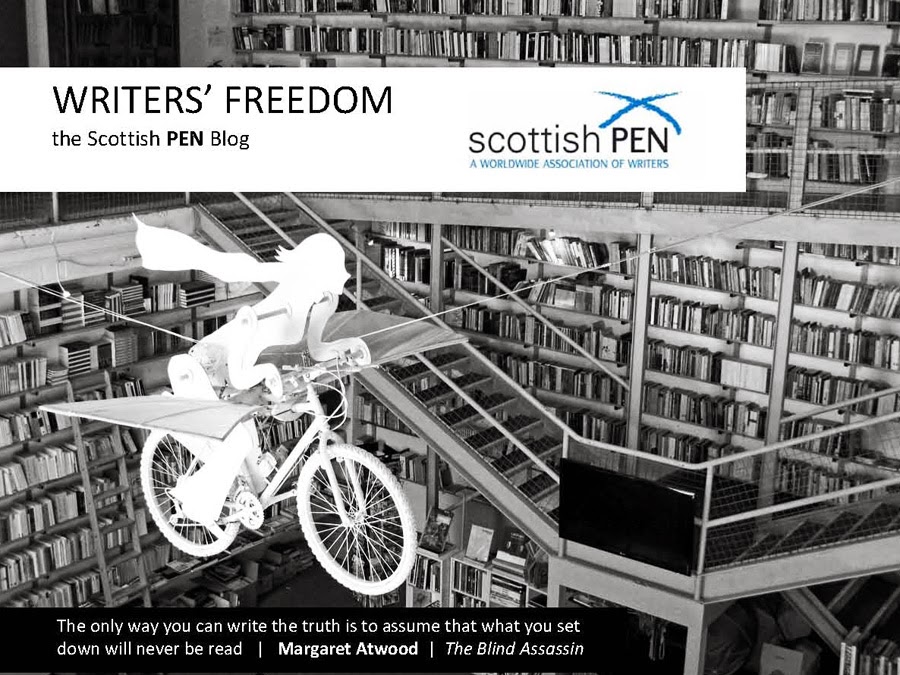Home and identity | my journey...so far
Nalini Paul, poet
and writer - India-born and later brought up in Canada before moving to
Scotland twenty years ago - describes her personal journey in which themes of
home and identity feature in her writing: poetry, a novel, and work for the
stage and film commissions
My
writing journey began the moment I first heard people speak. It was already
forming in my mind, long before I could read or write.
I
was surrounded by at least three different languages, while growing up. I was
born in India and my parents spoke Punjabi and Hindi as well as English; and
apparently I spoke Hindi while living in India, but I do not remember this. I
was only two-and-a-half years old when we moved to Vancouver, Canada. When I
first began to speak, apparently, I could switch from Hindi to English; and in
Canada, there were still a few residual Hindi words—some of which have stayed
with me. They often relate to food, such as cutta, meaning sour or
bitter tasting. But it is a particular flavour, for which “bitter” and “sour”
do not quite suffice. My paternal grandmother, who lived with us for several
years in Vancouver while my two brothers and I were growing up, used old
colonial English words that she had brought with her from India; such as
“compound” and “frock”. She pronounced “clerk” the English way (“clark”),
which—as Canadians—my brothers and I found odd and foreign sounding. I also
enjoyed studying French at school for six years, which came in handy as I
travelled around Europe for two months at the age of 20, staying in youth
hostels and soaking up the atmosphere.
I
have lived in Scotland for nearly 20 years, so people no longer mistake me for
an American, based on my accent. I have lost a lot of the West-coast Canadian
twang that I miss. Flights “home” always remind me of what I’ve lost, as soon
as I hear the air stewards’ relaxed, friendly tones.
While
in primary school in the 1970s, I wrote countless stories, which the teacher
would ask me to read out to the class. But when I got to my teens, I switched
to poetry. Despite reading a lot of Shakespeare and poems from anthologies of
20th Century English verse, my poems were quite awful at that stage.
I continued writing poetry into my 20s, and slowly, it began to improve. When I
started studying Philosophy and English Literature at the University of
Edinburgh, I did not write as much, being so absorbed in my studies.
Midwinter
Crow, you were a living shadow
whose darkness made daytime brighter.
Your call was forced
from that black, croaky place
like midnight purpling itself
into dawn
a slow, sad, time-stilling song.
No melody sprung from your throat
just a caw
that even the ducks mocked.
But the echo returns
far off and white:
a winter’s full moon
that you broke into stars
the bones of a creature licked clean
a lamb dying under a tree
with marble-black eyes
and a head full of grief.
You wait for the prize
fluttering soot and ashes
and the black-on-white typescript
of words that tried to contain you
the coal-stained sweetness
that will turn up diamonds in time.
As
a keen walker and photographer, I enjoy the intensity of being immersed into a
natural landscape and the elements, which can really heighten the senses (such
as rain and wind, of which there is plenty here!). The physicality of the
experience finds its way into my poetry in a very visual and sensory way. This
visual element has led to a number of collaborations with artists, including my
most recent project with the Scottish Poetry Library and Edinburgh Printmakers,
The Written Word. More than 30 poets have been paired with visual
artists to produce pieces for EP’s annual Christmas exhibition. My contribution
is a poem I’ve based on a Shetlandic myth about Hrafn Floki, the first Norseman
to sail deliberately from Norway to Iceland. The artist Catherine Hiley has made
a beautiful limited-edition book out of the poem.
Since
2010, I have written a few pieces for stage. While in Orkney, I was asked to
write the script for the annual community-led production, the Johnsmas Foy.
The narrative incorporated dance, live music (including fiddle, harp, guitar and
bodhran); my own poetry, as well as that of George Mackay Brown; and visual art
that formed part of the stage set. It was a very fruitful project that was a
pleasure to help develop in collaboration with artists from various practices. Over
the last year I have written a couple of pieces for Ankur Productions in
Glasgow, working with asylum seekers, refugees and immigrants from the South Asian
Diaspora. The Ankur Ha-Ha (Citizens Theatre, 2012) and Jukebox
(Tron, 2013) were based on scripts I wrote as narrative poems, using interviews
from the participants. These were staged and performed by dancers in 2012 and
amateur and professional actors in 2013.
This
year also marked my first commission for film. My poem, Seeing in Colour,
was made into a short animated film by David Galletly for Glasgow Film’s For
All project, which examines the role of cinema in society. The film
includes a short extract of the poem, and was shown at the Glasgow Film Theatre
for two weeks in August.
I
have recently completed material for a full collection of poetry, and look
forward to writing more for stage.
I
currently teach Creative Writing in Edinburgh and in Glasgow, and run my own
business, Write Here, Write Now: www.whwn.co.uk.
A website featuring my writing is currently in progress.



1 comment:
Her story is an inspiration for others. The people who are not the natives often experience identity crisis in other countries. She has tackled the subject beautifully in her writings.
Post a Comment